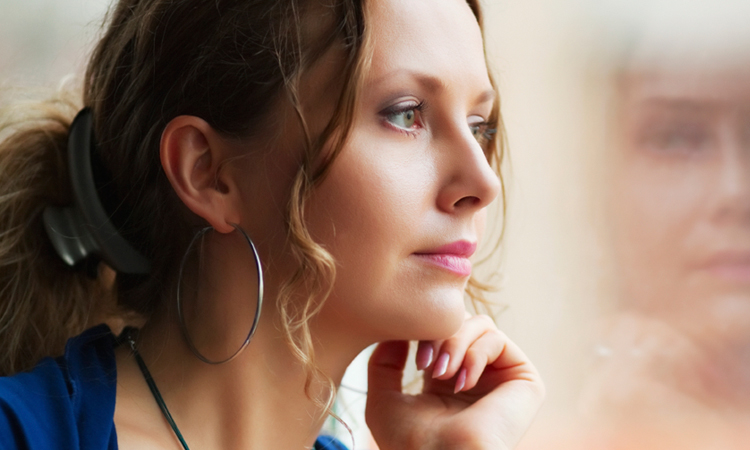
How to find yourself is one of the most challenging experiences of being human. There’s no textbook, no college course, no professional training program with a solid structure that works for everyone. When it comes to discovering how to find yourself, you’re pretty much on your own—which is, perhaps, exactly how it should be. Discovering who you are has to be as unique a process as you are a unique person.
Still, there are ways to focus the journey into self-discovery that make it easier to navigate. Recently, I caught up with Dr. Joel Wade, a marriage and family therapist and life coach and the author of Mastering Happiness. A close colleague of the late Dr. Nathaniel Branden (a pioneer in the world of self-discovery), Wade shared some tips for how anyone can engage in daily practices that continually cultivate self-knowledge.
Defining Self-Discovery
I had a friend in high school who had grown up in a home rife with abuse. When we graduated senior year he shaved his head, shelved his plans for college, and jetted off to India with a backback and a quest to “find myself.” He came back a year later with terrific travel stories but not much more of a sense of who he was. The problem could have been that my friend was looking for one fixed essence of himself. As Wade explains, that’s not really the goal of self-discovery:
“Nathaniel Branden talked about integrity as when you say what your thoughts and feelings and beliefs are. You speak from what’s true about your internal experience, and then your actions are integrated with your speech so you don’t say one thing and do another thing. I see self-discovery as sort of ongoing, always a work in progress because you’re always integrating new things. You’re always having some new experience that you need to integrate, and each one of those has the potential to change you a little bit. So it’s not like you’re discovering this static entity that’s ‘myself.’”
Rather, we’re constantly discovering and rediscovering who we are as we integrate experiences, beliefs, and actions over the course of a lifetime. We do this in two important ways. First, as a process of our private internal experience of feelings and thoughts. Second, as a result of our relation to others and the world at large. Self-discovery, then, unfolds as a process of conscious self-reflection in relation to ourselves and those around us.
How to Find Yourself a Little More Every Day
One of the most significant obstacles to finding yourself arises from inattention. Fortunately, this is easy to fix. The more finely you hone observational skills (and focus them on recognizing and assessing personal experiences), the more effectively you discover layers, levels, and launchpads of who you are day to day over a lifetime. Creating a sustainable and easy-to-maintain authentic self-connection naturally evolves from engaging in actions that foster self-awareness. Dr. Wade suggests the following three methods for developing your own private self-discovery journey:
- Pay attention to your physical sensation. It’s easy to ignore the messages your body sends. These missives, however, offer crucial information about how you’re affected by situations. From this feedback you learn about thoughts, feelings, desires, and fears—all aspects of your deepest self and all elements that drive your behavior.
Action step: Throughout the day pause, suspend judgment, and observe your physical sensations and the circumstances that create them.
- Pay attention to your emotional interpretation. You experience the world you perceive. The problem: What if what you see is inaccurate? Personal filters bestow meaning upon every interpersonal and other interaction that then dictates what you think, feel, and do. Exploring the meaning you attach to experiences (and making sure it’s accurate) helps you learn to better analyze and understand yourself.
Action step: Assess the meaning you ascribe to interpersonal interactions. Then, own it by recognizing the interpretation and deliberately asking those around you if that meaning aligns with their intention in the moment.
- Pay attention to what matters to you. The more connected you are to the flow of what feels good to you, the more you will learn who you are and the more opportunity you will have for making choices and taking actions that create a sense of self and life that feels right for you. Knowing what matters to you offers an inner roadmap to innate gifts and qualities. Tal Ben-Shahar, a thought leader in the field of positive psychology, offers three questions to help focus attention in this area.
Action step: Periodically ask, (1) What matters to me? (2) What am I good at? (3) What do I enjoy?
In any life it’s normal to ask such existential questions as Do I matter? Am I making a difference in the world? Am I living the life I’m meant to be living? Finding the answers to these questions offers tremendous opportunity to live more fully and deeply.
My friend is in his 40s now, still searching for a persona to call his own but integrating that search with a building a full life. How we define ourselves and reach our potential has a lot to do with creating an inner culture of self-discovery that lasts throughout all stages, experiences, and phases of life. We are works in progress; in order to make progress, we have to keep discovering ourselves.
To find out about Rose’s thoughts on how to live a happier life, click here



